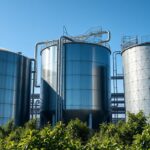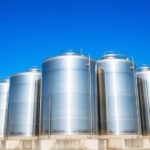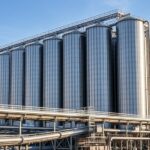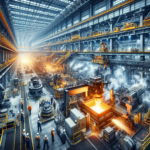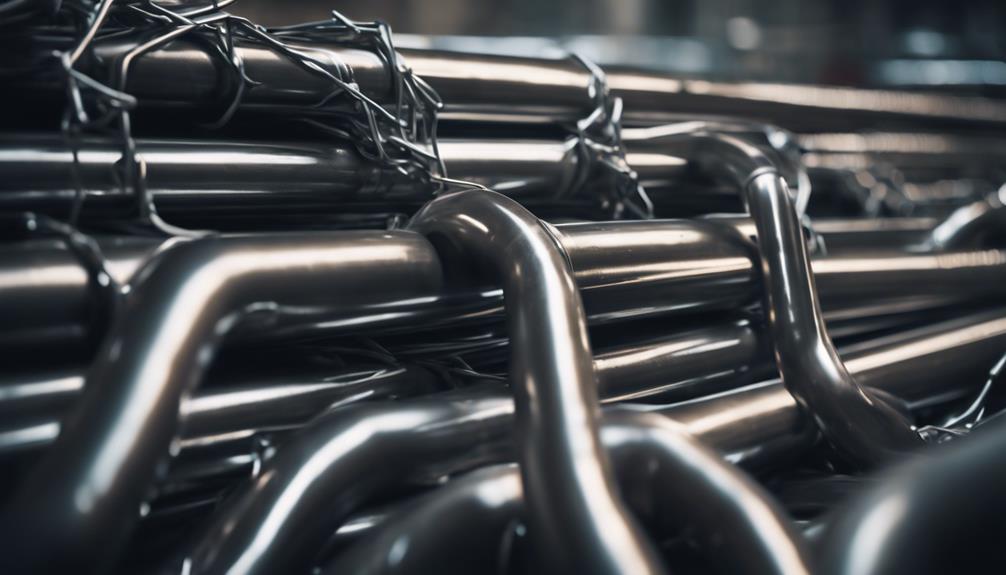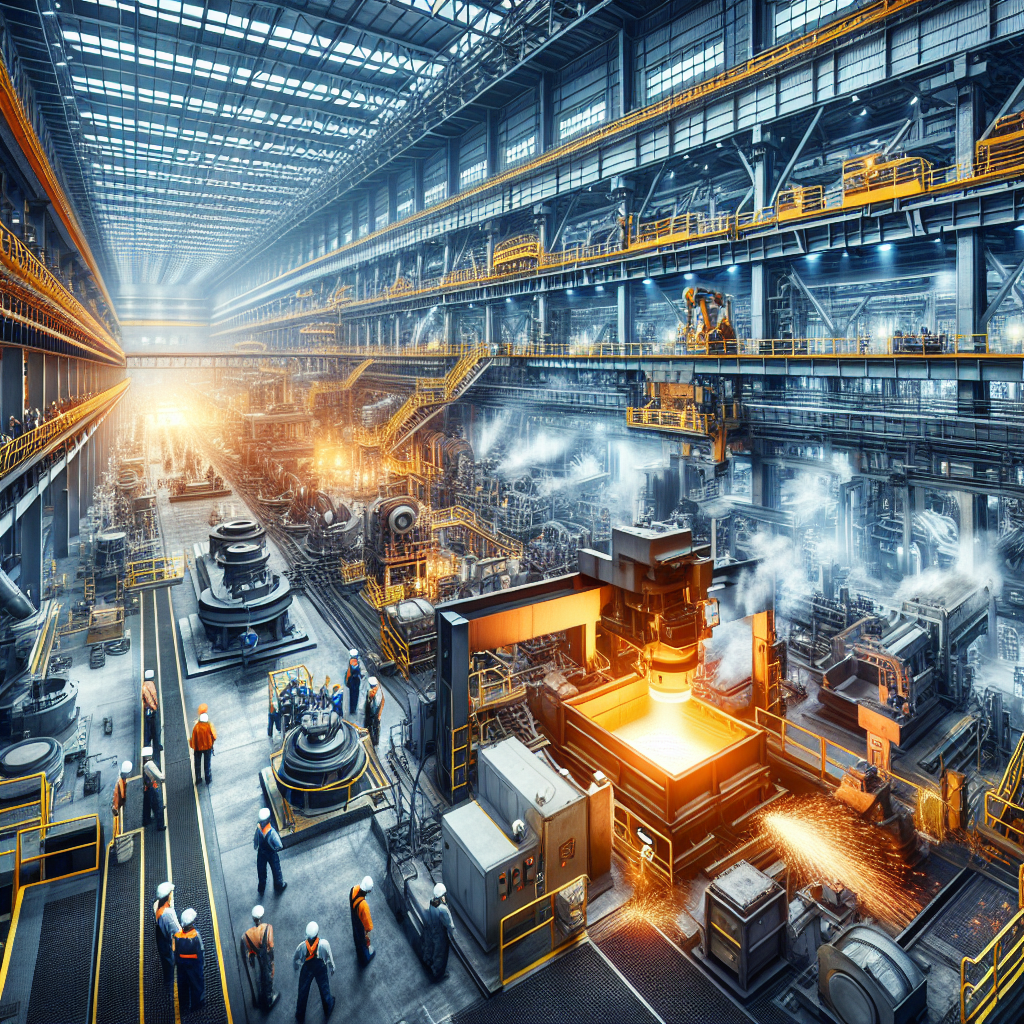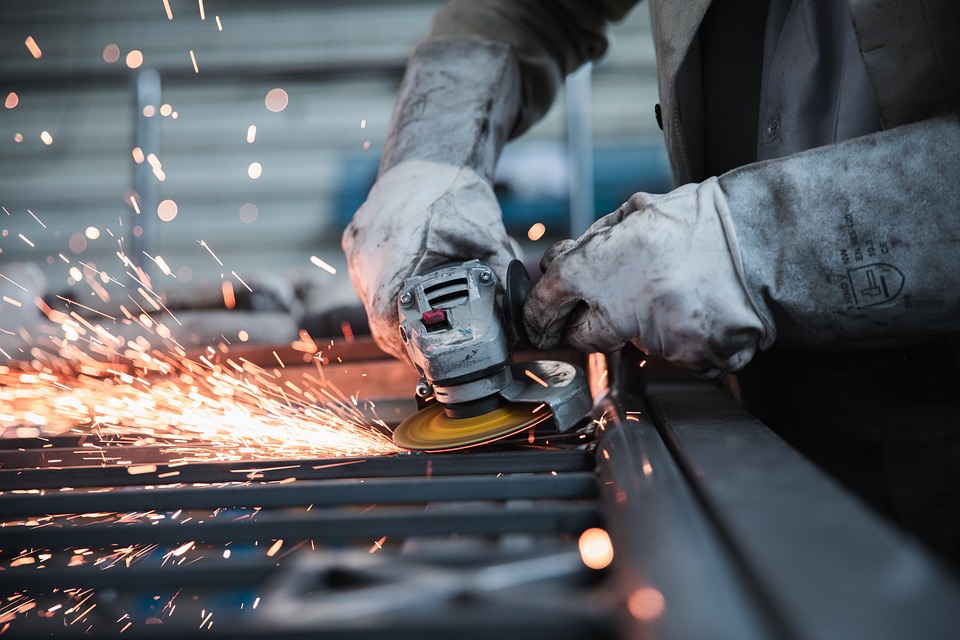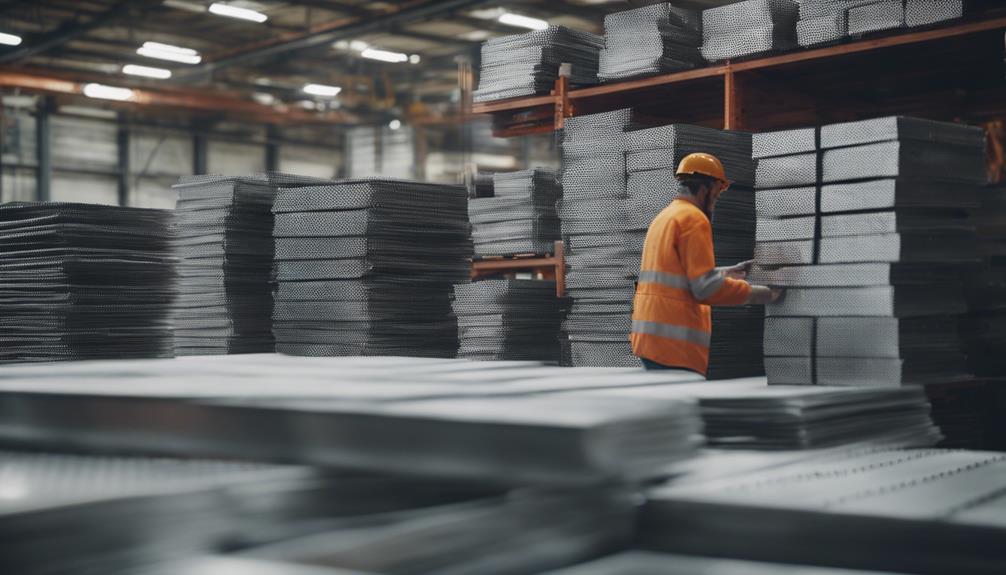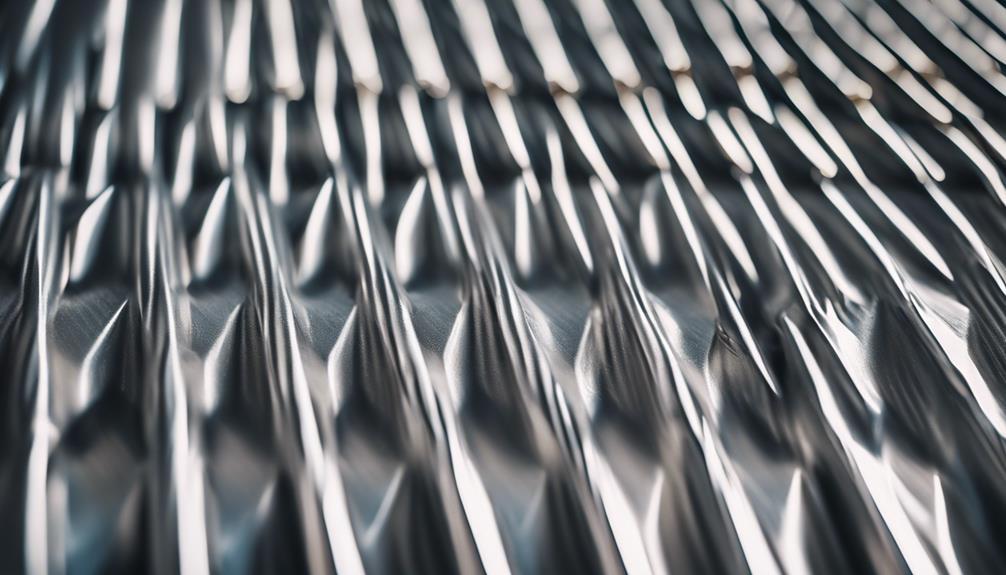Steel pipes play important roles in building construction, infrastructure projects, and industrial applications. They provide structural support, plumbing solutions, and resilience to harsh conditions like extreme temperatures and corrosive environments. Steel pipes are known for their durability, high stress resistance, and versatility, making them essential in various sectors. Understanding the different types, coatings, and manufacturing processes of steel pipes is essential for selecting the right materials for specific applications. The versatility and reliability of steel pipes continue to drive their widespread use across different industries.
Key Takeaways
- Steel pipes are essential in building construction for structural support, plumbing, HVAC, and fire protection.
- They serve vital functions in heavy-duty industries due to durability and corrosion resistance.
- Steel pipes enhance infrastructure integrity with strength, durability, and corrosion resistance.
- Various types and coatings protect steel pipes against corrosion in different applications.
- Steel pipes are crucial in the oil and gas industry for efficient transportation of fluids, conforming to safety standards.
Steel Pipes in Building Construction
Steel pipes are indispensable components in modern building construction, serving important functions in structural support, plumbing, drainage, HVAC systems, and fire protection. In building construction, steel pipes provide the necessary structural support for various applications. They are commonly used in framing structures, supporting heavy loads, and creating durable frameworks for buildings. Additionally, steel pipes play a critical role in plumbing and drainage systems within buildings, efficiently transporting water and sewage. HVAC systems rely on steel pipes to distribute heating and cooling effectively throughout the building, ensuring comfortable indoor environments. Furthermore, steel pipes are valued for their durability and corrosion resistance, making them ideal for long-term use in construction projects. To conclude, steel pipes are essential components in fire protection systems, offering reliable methods for containing and extinguishing fires in buildings.
Industrial Applications of Steel Pipes
With their widespread use in heavy-duty industries like infrastructure, ships, distillers, and chemical fertilizers equipment, steel pipes play vital roles in industrial applications. Stainless steel pipes are favored for their suitability in extreme environments and exposure to water, making them ideal for high-moisture settings. Both stainless steel and carbon steel pipes are essential components in piping systems for the reliable transportation of fluids and gases. Carbon steel pipes, known for their durability and high stress resistance due to low alloy content, excel in extreme conditions. In contrast, stainless steel pipes, crafted with nickel or chromium alloys, offer exceptional abrasion and corrosion resistance, ensuring a long lifespan in industrial settings.
Benefits of Steel Pipes in Infrastructure
Playing a pivotal role in enhancing the structural integrity of various infrastructure projects, steel pipes offer unparalleled strength, durability, and corrosion resistance. Their high strength and durability make them essential for underground water and gas pipelines, bridges, and building structures, ensuring long-term reliability and safety in construction. The resistance to corrosion adds to their appeal, as they maintain their integrity even in challenging environmental conditions. Additionally, the versatility of steel pipes allows for easy customization to meet specific project requirements, making them a preferred choice for engineers and developers. By contributing to the overall efficiency and sustainability of infrastructure development, steel pipes play a significant role in advancing modern construction practices.
Types and Coatings of Steel Pipes
Enhancing the longevity and performance of steel pipes, the various types and coatings available play an essential role in ensuring their durability and resistance to corrosion. Steel pipes can be categorized into seamless and welded types, each with specific manufacturing processes. Coatings such as galvanized, epoxy, and polyethylene protect against corrosion, extending the lifespan of the pipes. Internal coatings like cement mortar lining or epoxy coatings are utilized to prevent corrosion and enhance flow efficiency. Additionally, zinc coatings provide vital protection, increasing durability in harsh environments. Fusion-bonded epoxy (FBE) coatings offer exceptional corrosion resistance, making them a popular choice for pipelines in oil and gas transportation. These coatings are important for maintaining the integrity of steel pipes in various applications.
Steel Pipe Manufacturing Process
The production of steel pipes involves a meticulous manufacturing process that encompasses techniques such as welding and seamless tube drawing from billets. Welding is utilized to join steel strips, forming pipes, while seamless tubes, lacking joints, offer increased strength. Coarse abrasive methods are employed to eliminate visible weld seams and scale from the steel pipes. When manufacturing steel tubing, grinding parallel to the weld seam is the preferred method. Steel pipes can be produced in various finishes including annealed, hot-rolled, and cold-rolled, tailored to different applications. This intricate manufacturing process guarantees that steel pipes meet the required specifications and standards for their intended use across various industries.
Steel Pipes in Oil & Gas Industry
Steel pipes play a pivotal role in the oil and gas industry by guaranteeing the efficient and reliable transportation of oil, gas, and water over extensive distances. These pipes are essential in various applications within the sector, such as oil refineries, drilling operations, and pipelines, due to their durability and resistance to corrosion. To guarantee safe operations, steel pipes used in the oil and gas industry must conform to specific industry standards. Seamless steel pipes are favored for high-pressure applications in exploration and production activities, while welded steel pipes are utilized for lower pressure scenarios, offering cost-effective solutions. The versatility and strength of steel pipes make them indispensable for the transportation of resources in the oil and gas industry.
Future Trends in Steel Pipe Technology
Innovative advancements in materials and manufacturing processes are shaping the future of steel pipe technology. Advanced coatings and linings are being developed to enhance durability and extend the lifespan of steel pipes. Incorporating digital technologies like IoT and AI into manufacturing processes is improving efficiency and enhancing quality control measures. Sustainable practices, including the use of recycled steel and emission reduction strategies, are gaining traction within the industry. Smart monitoring systems are being deployed to detect and prevent corrosion or structural issues in steel pipes, ultimately boosting safety and reliability. Research and development efforts are concentrated on producing lighter yet stronger steel pipes to optimize performance and minimize material usage, paving the way for a more efficient and sustainable future in steel pipe technology.
Frequently Asked Questions
What Are the 4 Types of Steel Pipes?
The four main types of steel pipes include seamless, welded, galvanized, and stainless steel. Each type offers distinct characteristics and advantages, catering to diverse industrial applications. Seamless pipes provide high strength, welded pipes are versatile, galvanized pipes resist corrosion, and stainless steel pipes excel in harsh environments.
What Is Steel Pipe Used For?
Steel pipes are versatile and durable materials commonly employed in a wide array of industries for various applications. They are utilized for their strength, reliability, and longevity, making them essential components in many construction and transportation projects.
What Are Metal Pipes Called?
Metal pipes are commonly referred to as conduits used for transporting liquids, gases, or solids in various industries. They play an essential role in infrastructure, ensuring efficient material transportation. Their durability and versatility make them indispensable in industrial applications.
How Is Steel Pipe Sizes?
Determining the size of steel pipes involves understanding the Nominal Pipe Size (NPS) system, which is based on the pipe's inside diameter. This standard is essential for selecting the appropriate pipe size to guarantee peak performance in various industrial and residential applications.

